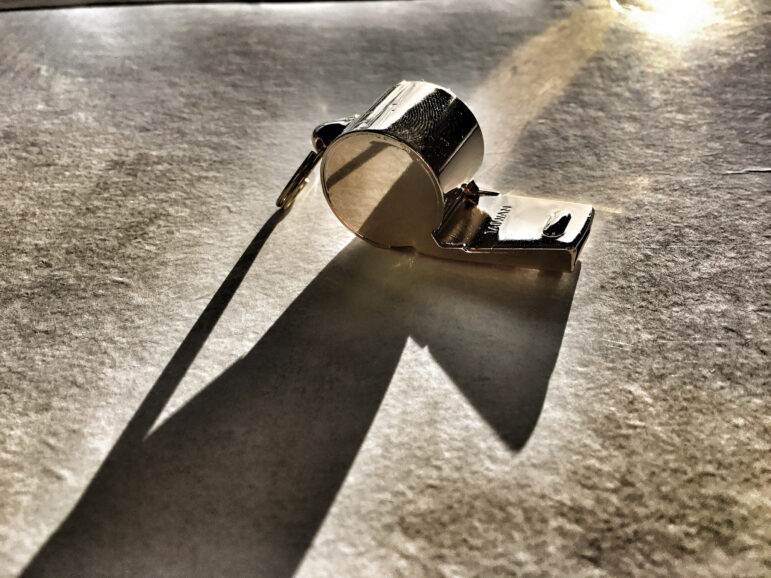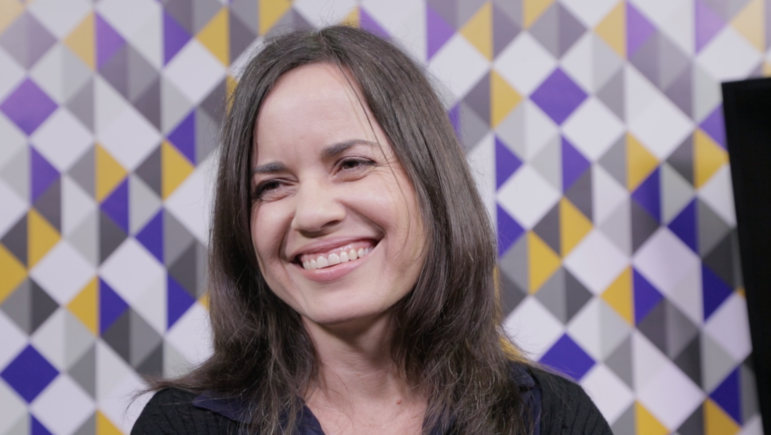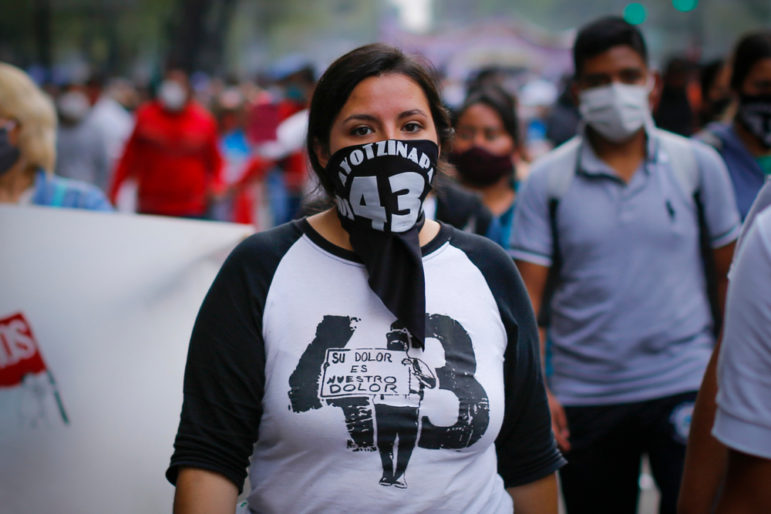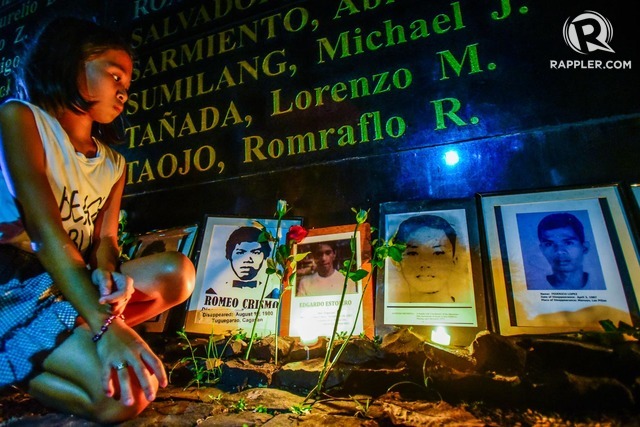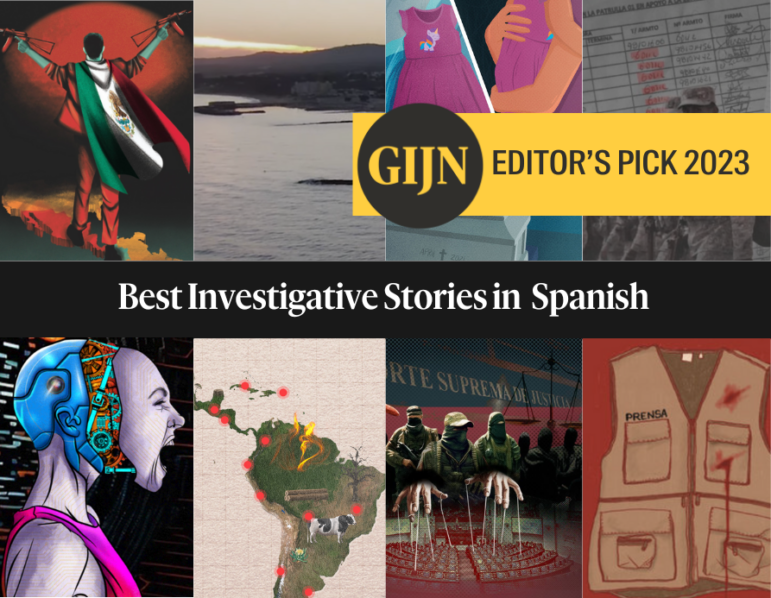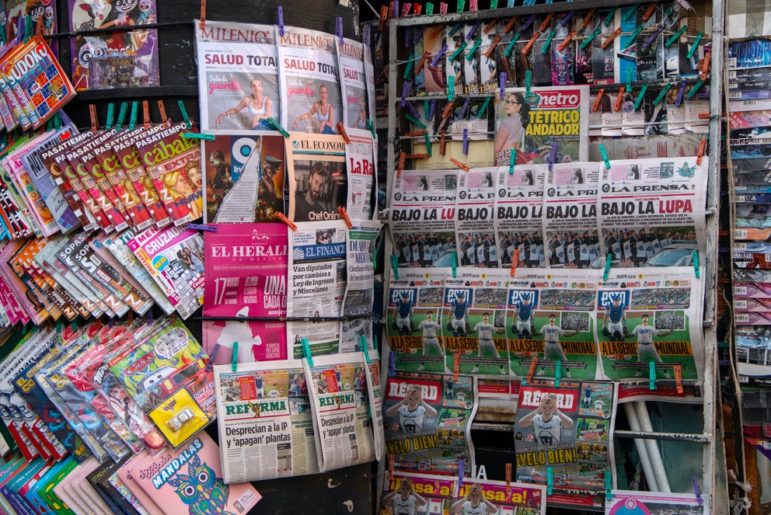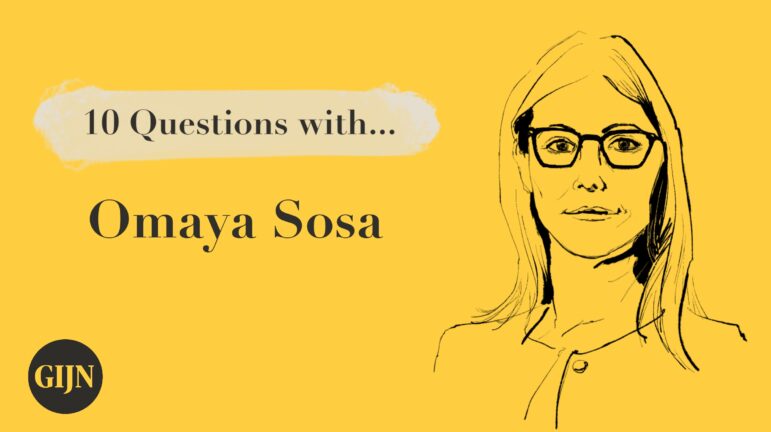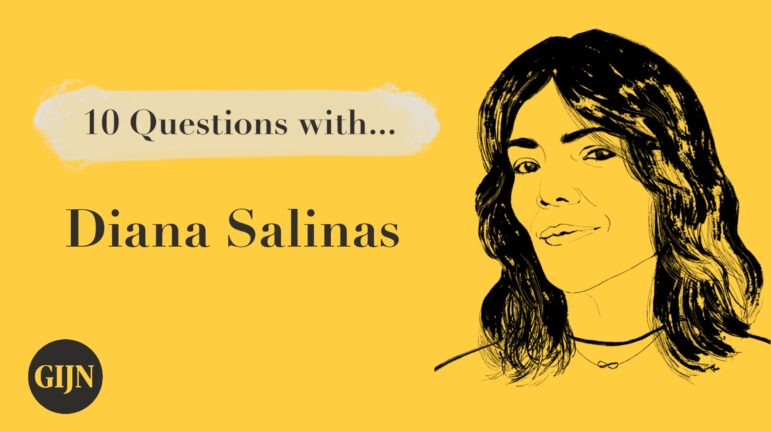

Illustration: Smaranda Tolosano for GIJN
‘Exercising a Counterpower Role Brings Threats’: Advice from the Colombian Investigative Journalist Diana Salinas
Read this article in
Colombia has long been one of the most dangerous countries in Latin America to be a journalist. Reporters Without Borders warns that covering corruption or collusion between politicians, private sector companies, or organized crime often “elicits systematic harassment, intimidation, and violence.”
But digging into those with power, and investigating how money, corruption, and politics collide, is “in the DNA” of Diana Salinas and her colleagues at Cuestión Pública.
The independent newsroom was founded by a trio of investigative and data reporters, including Salinas, who were, as they put it, “obsessed with digging until we reached the truth on questions like: what is it that the powerful want to hide?”
I met Salinas at the Latin American Conference on Investigative Journalism (COLPIN, for its acronym in Spanish) in Rio de Janeiro, Brazil. I was impressed by her extensive reporting, as well as her modesty, even when talking about the important investigations she has done to highlight corruption and abuse of power in her country.
Salinas’ background has seen her work across the length of the continent: After completing a master’s in journalism in Buenos Aires, she worked as a reporter for the prominent Argentinian newspaper La Nación. Later, back in Colombia, she joined the television news program Noticias Uno, where she earned two Simón Bolívar Awards, the national press awards, including one for the best investigation on television.
In 2018, after a few years spent working different investigations, she and her two co-founders decided to strike out on their own, determined to “fill the gap of independent investigative journalism in Colombia.” In recognition of their work, last year the team was awarded the Premio Rey de Espana, one of the most prestigious prizes for Spanish-language media outlets.
Diana Salinas spoke to GIJN as part of our ongoing interview series to share her favorite investigation, tips for reporters on challenging the powerful, and keeping safe when reporting.
GIJN: Of all the investigations you’ve worked on, which has been your favorite and why?

Cuestión Pública’s first big investigation, Sabemos Lo Que Hiciste, looked into the business relationships of Colombian politicians. Image: Screenshot
Diana Salinas: This is a hard question. I’ve loved many of the investigations I’ve carried out. But the one that will always be my favorite is We Know What You Did (Or in Spanish, “Sabemos lo que hiciste”), our founding project at Cuestión Pública. It was this investigation that helped us create this eclectic model by which we combine creativity, data, and classical investigative reporting, in this case by using a follow-the-money methodology to look at money and people in congress.
GIJN: What are the biggest challenges in terms of investigative reporting in Colombia?
DS: Violence is the biggest. As a journalist, exercising a counterpower role brings threats, judicial harassment, and digital abuse on social media. Added to this, we are working in a country with high levels of organized crime and very little protection for media outlets and journalists… Even with our audiences, we see that when people admire someone that we are investigating, they immediately go on the offensive with violent discourse and attacks on our credibility.
Then there’s the challenge of investigating a left-wing government. Sometimes people think that carrying out our work constitutes a political attack, that we have been bought by the right, or simply that this kind of work was fine, but only under the previous administration. I am particularly concerned about the current president’s position regarding journalism and his desire to inform and establish his point of view as “the truth.” Finally, we face the same challenges as everyone else: handling fake news, not publishing mistakes due to the need for speed, overcoming our own personal biases, the credibility crisis related to anyone who claims to be a journalist, and investigating fanatical politicians.
GIJN: What’s been the greatest challenge that you’ve faced in your time as an investigative journalist — censorship, personal danger, finding sources, discrimination?
DS: I’ve been through them all. I don’t know which was worse: censorship or being in personal danger. One experience that took me by surprise was when a journalistic program, with a team of almost 20 people, was shut down due to an investigation I was working on related to the then-president of congress. I had never experienced the silencing of an investigation at the request of a powerful person. I experienced the horrible loneliness that censorship imposes on the press. The feeling of being crushed.
GIJN: What is your best tip or trick for interviewing?
DS: Going where my curiosity takes me, asking direct questions, without hesitation, and trying not to finish until you have satisfied any doubts I have or that arise during the interview. I always prepare a short questionnaire that serves me as a guide, and so I don’t forget anything. However, I am always listening attentively to the interviewee’s answers, so that I can ask different questions if the interview takes unexpected turns.
GIJN: What is a favorite reporting tool, database, or app that you use in your investigations?
DS: Excel, which like God, is above all things. That’s a joke… Although what is true is that I use it to take reading notes, to systematize documents, create databases, see possible cross-references. It is the most efficient way to save time. At Cuestión Pública we have an internal database of applications and digital search locations. I am also fascinated by Secop, a tool to find out about public procurement, and RUES, by the Chambers of Commerce. Plus the tools from the Agustín Codazzi Institute for georeferencing real estate data, Panadata [a public data tool for Panama] and the databases of the OCCRP.
GIJN: What’s the best advice you have received thus far in your career and what words of advice would you give an aspiring investigative journalist?
DS: When in doubt, stop. It is the best advice I have received. Ignacio Gómez, deputy director of the Noticias Uno news program, told me that a long time ago. It helps me so I do not publish anything that is weak or underprepared. I apply this to almost everything. The best advice I can give… I would say that good investigations are defined in two stages: the first part is based on our ability to find the diamonds in the mine. The second, once you’ve identified them, you use a nail and hammer and hit them, you have to know how to extract it, and then polish it until you get the diamond. Only at that point publish, not before. If you can put your creative touch on it, then it is even better.
GIJN: Who is a journalist you admire, and why?
DS: There are many! I always said that when I grew up I wanted to be sharp like Oriana Fallaci or Cecilia Orozco, rigorous and seasoned like María Teresa Ronderos, a writer like Laura Restrepo, tireless like Daniel Coronell, intelligent like Ignacio Gómez, prolific like Olga Behar, authentic and irreverent like Tom Wolfe, not without getting closer to the prose of Leila Guerriero, and of course, to the most loved and admired Rosa Montero for being an example of what in my view is the perfect combination: journalist and fiction writer.
Over time I have also developed deep admiration for my two partners at Cuestión Pública: Claudia Báez and David Tarazona. They are the toughest, in data, in forensic journalism, in the ability to work as a team, to lead newsrooms. They are rigorous, persistent, honest and so creative. They both inspire me.
GIJN: What is the greatest mistake you’ve made and what lessons did you learn?
DS: As editor and director, giving the publication green light to an investigation that disrespected the off-the-record rule. It was a monumental mistake. It happened in the second year of Cuestión Pública’s existence. The investigation had to do with [corruption allegations about the construction giant] Odebrecht and several powerful people in Colombia. Within a few minutes of publishing the piece, a journalist called — who is among my most admired — surprised by the mess. We had to pull the piece immediately. It cost us the trust of the source that we had obtained in Peru. Also the credibility of several experienced journalists who worked with us. Some didn’t open the door for me again. It was like having to do the 12 labors of Hercules for many years to fix the issue.
GIJN: How do you avoid burnout in your line of work?
DS: I sleep eight hours every day no matter what. I run. I meditate. I practice ballet, sometimes (very rarely). Yoga, sometimes I read. I study tarot, (I love it). I take care of my garden. I write every day when I wake up. I love poetry, stories, and reflections. I try to think about things outside of journalism. I try to dedicate time to the people and the things I love. I travel. In short, I do many things to not succumb to the obsessive force that invades me when I investigate. I still fail from time to time. I have to regularly remember what is important to me. So that I begin again and again.
GIJN: What about investigative journalism do you find frustrating, or do you hope will change in the future?
DS: One day I wanted to read a book on investigative journalism techniques and I realized that in Colombia there were no female authors in the field. Furthermore, very few women publish in-depth investigations. I decided I wanted to change that, and have been working on that for about three years. Soon I hope we will have a plethora of alternatives.
 Andrea Arzaba is a journalist and GIJN’s Spanish Editor. As a reporter and media professional, she has focused on documenting the stories of people in Latin America and Latinx communities in the US. She is an International Women’s Media Foundation fellow and part of Transparency International’s Young Journalists Program.
Andrea Arzaba is a journalist and GIJN’s Spanish Editor. As a reporter and media professional, she has focused on documenting the stories of people in Latin America and Latinx communities in the US. She is an International Women’s Media Foundation fellow and part of Transparency International’s Young Journalists Program.

